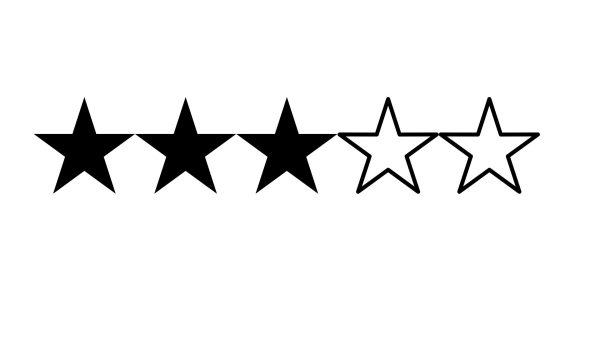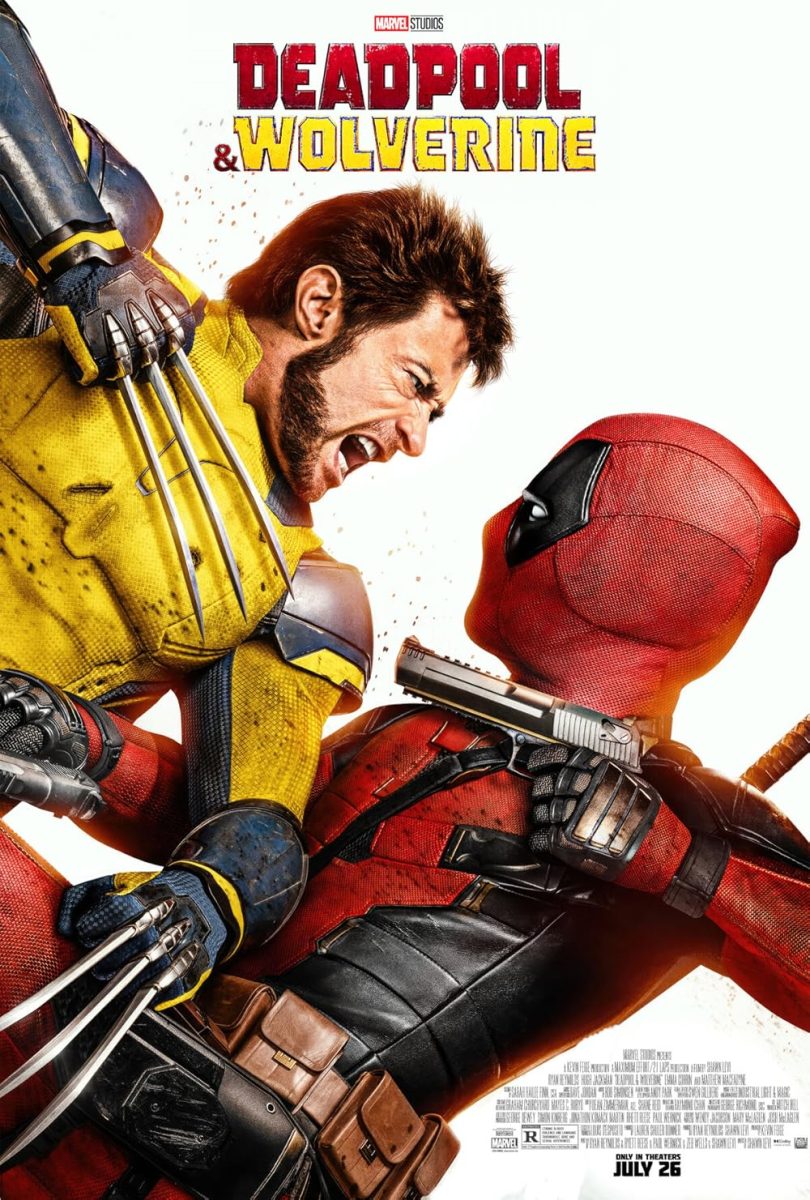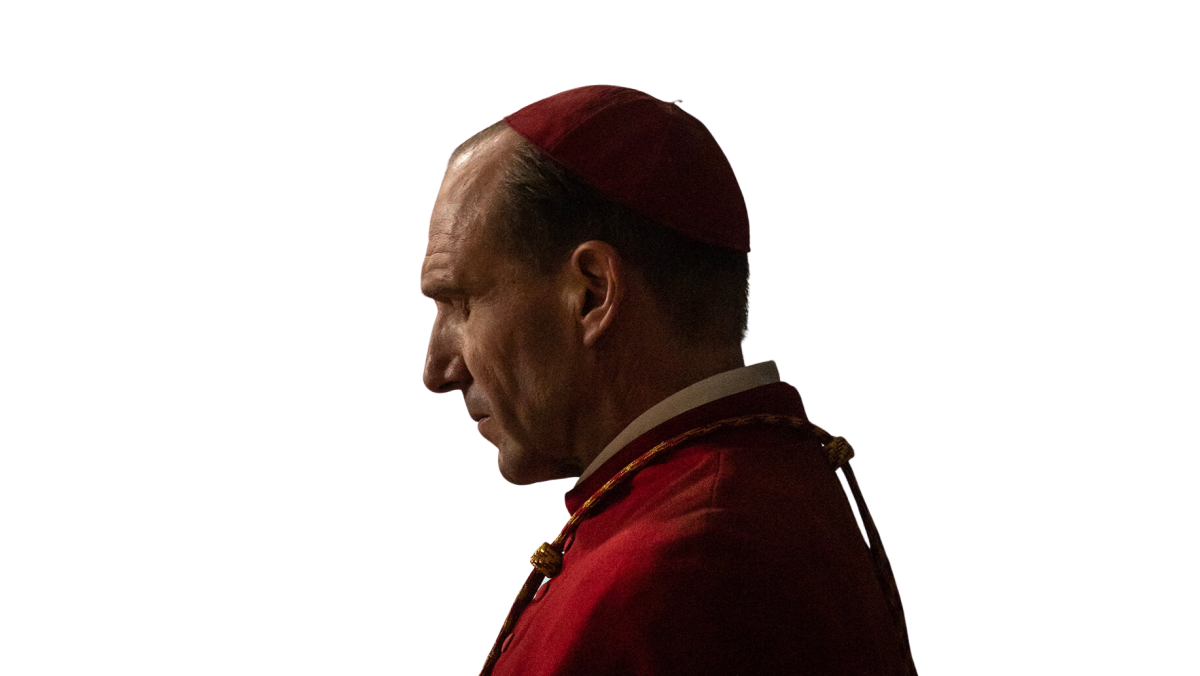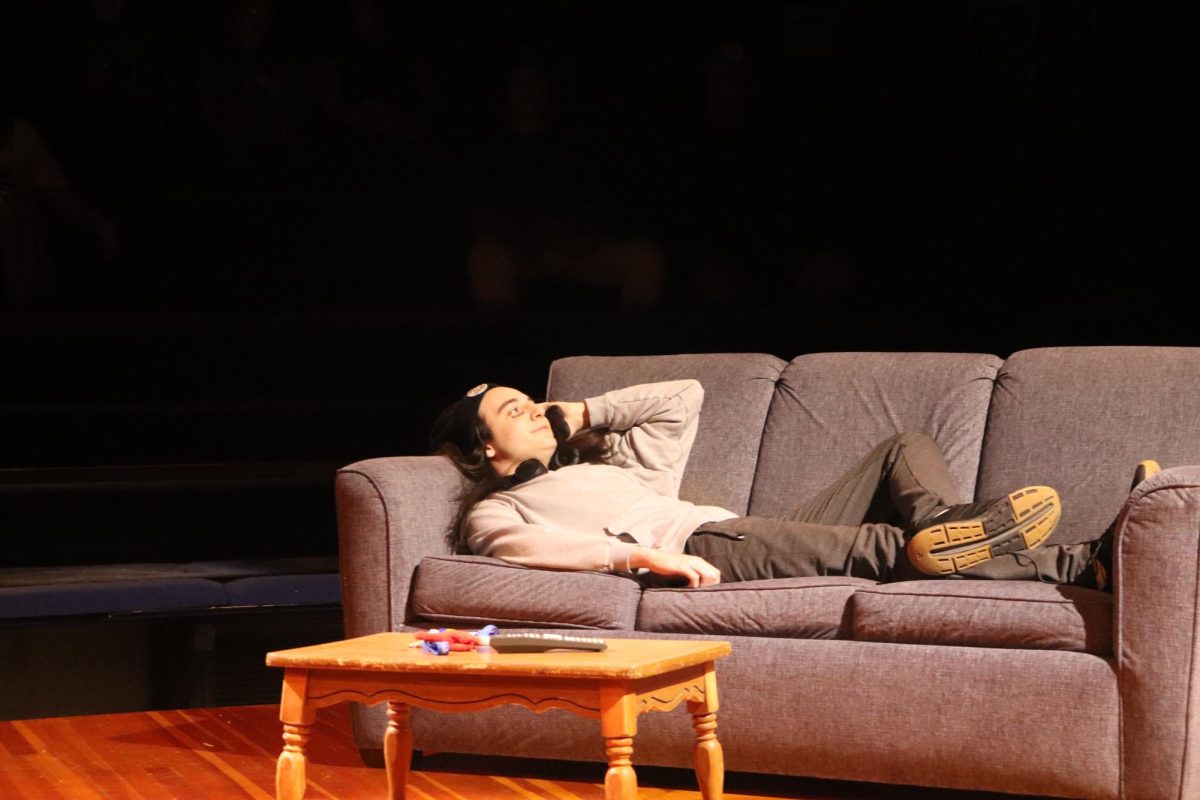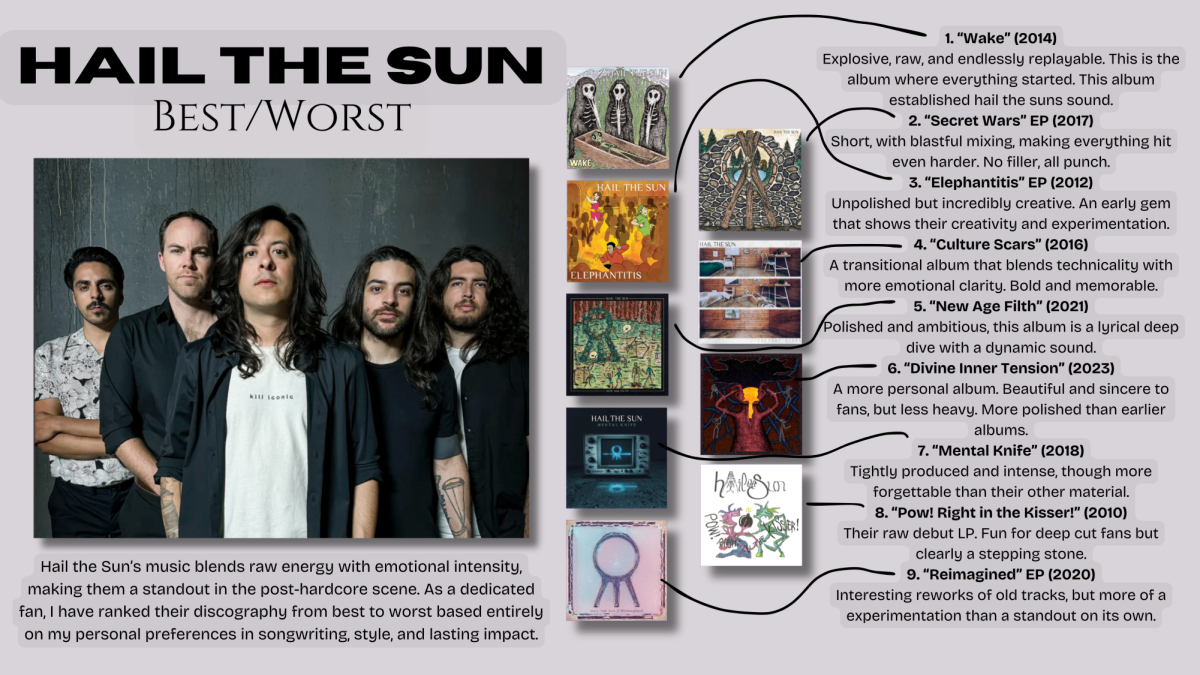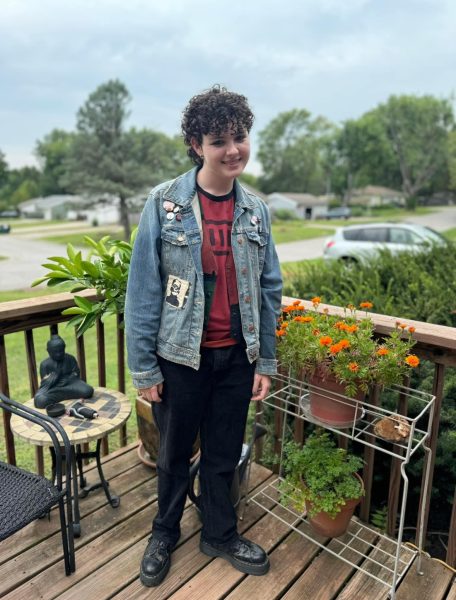This review contains spoilers for “Deadpool & Wolverine.”
Deadpool has been a fan-favorite character since his cinematic debut in 2016, but the long-awaited third installment of the Deadpool franchise has brought a huge surge of interest in all things Deadpool, Wolverine, X-Men– and Fox’s MCU in general.
“Deadpool & Wolverine” reached $600 million in domestic box office sales over Labor Day weekend, which makes it the second-highest-grossing movie of the year so far. Because of its albeit expected popularity, there’s been an (unexpected) domino effect causing not just Deadpool to trend online, but Wolverine and the X-Men altogether, new and old fans (including me) raving about the days of Fox’s MCU.
Walking through the halls of our school (and likely the majority of high schools across the country) I can’t go two minutes without seeing X-Men or Deadpool memorabilia. As a memorial or love-letter to pre-Disney Marvel, this film has successfully got fans remembering, rewatching and appreciating the old films – and even the new animated show, “X-Men ‘97” (2024) has become considerably popular.
If it wasn’t obvious from the title of the film, “Deadpool & Wolverine” is another multiverse movie, given that Deadpool exists in the universe where Wolverine died in “Logan” (2017). In the film, the Time Variance Authority, TVA, abducts Wade, and Paradox, a TVA employee and one of the antagonists of the film, tells him his timeline falls apart after the death of its “anchor being,” Wolverine. On a journey to save his timeline, Wade attempts to recruit a Wolverine, and there was a fun scene for this, he gets rejected by all sorts of Wolverines – references to various comic situations, like Wolverine being crucified on an X, and a short-statured but comic accurate, 5 ‘3” variant. Wade eventually finds a begrudging yet willing Wolverine, apparently the worst one of them all, to help him save the timeline.
The film uses the freedom of multiverse to include many beloved characters that haven’t been on-screen in years. Fans and critics have been saying the multiverse trope is getting old, but I don’t agree completely. Though it is true, the film industry, especially Marvel, has been milking the multiverse cow since “Avengers: Infinity War” (2018). Though there have been a large share of bad multiverse movies, It’s something so key to all things comic and superhero – it gives full creative flexibility to the creators. Nothing is really set in stone which makes for unlimited possibilities. It’s just that sometimes it works and sometimes it doesn’t.
“Deadpool & Wolverine” works, at least in terms of the multiverse concept. mainly because of the charm of the actors and special appearances. For a good chunk of the film, Deadpool and Wolverine were trapped in the Void, A Mad-Max style universe where misfit heroes and villains are sent by the TVA as “time offenders.” This is where much of the special appearances occur, of both comic characters never before seen on screen, and fan favorites reprising roles from the early days of Marvel.
Wesley Snipes’ reprisal of the trench-coated vampire-hunter Blade was such a cool surprise, as Blade has a cult following that hasn’t seen the character on-screen since the 90s. Chris Evans was also in the film during the Void part, as Johnny Storm rather than Captain America, which was also a shock to both the audience and, hilariously, to Deadpool. New to the big-screen is Cassandra Nova (Emma Corrin) – Charles Xavier’s evil twin – who was featured as a sort of leader in the Void and one of the main antagonists in the film. There was also a new actor for an old role; Gambit, a mutant who supercharges things with energy, especially playing cards. The character was first portrayed on film in X-Men Origins: Wolverine by Taylor Kitsch in 2009, and hasn’t been featured in a film since. In “Deadpool & Wolverine,” he was portrayed by Channing Tatum, who rocked a semi-unintelligible cajun accent which had Deadpool asking who his dialect coach was.
There were many other role reprisals featured within the Void, such as Wolverine’s brother, Sabertooth (Tyler Mane) from “X-Men” (2000), and Elektra (Jennifer Garner) from “Elektra” (2006).
“Deadpool and Wolverine” had such a great supporting cast, with various returning characters from Fox’s MCU, both fan favorites and characters who were on the road to obscurity. I found this aspect one of the most enjoyable in the film– it was willing to make references to all the old stuff for the fans, a fond farewell to Fox’s MCU going all the way back to its beginnings. These features of old characters and actors, even including Wolverine who hasn’t been on-screen since 2017– a whopping six years– have brought a surge of interest in the X-Men side of Marvel which I really enjoy. This film might even be remembered simply for its spark that caused a sort of X-Men revival, which I predict Disney will take advantage of–get ready for the X-Men reboot!
The new supporting cast was very charming and exciting– seeing old and new characters is always fun. However, the removal of the old supporting cast really took away from the Deadpool-ness of the film. His self described found-family in Deadpool 1 and 2 are nearly non-existent. Wade’s home life with his friends and even Vanessa, who he saved with Cable’s time machine device in a post credit scene of Deadpool 2 – which probably should have been re-explained in all honesty, were reduced to one-dimensionality. They were barely even in it – the supporting cast was entirely replaced, the old supporting cast, including Vanessa, Negasonic Teenage Warhead, and Colossus were only featured at the beginning and end really. Vanessa should have had so much more screen time, she was made out to be the love of Wade’s life for the entirety of the first two films, but she inexplicably broke up with him in this one, and isn’t really much more than a plot device, to include some sort of romantic attempt. It really didn’t work, all of the funny, misfit characters that were heavily involved, emotionally and physically, in the first two movies were almost completely absent, which made this feel so disconnected from the rest of the franchise.
This film was a goodbye to Fox’s Marvel, but it was made by Disney, as Wade makes it known many times throughout. It’s also quite obviously different from the previous two Deadpool movies. Though they manage to include as many curse words as they wish, there’s a lack of lewd jokes – though there are violent fight scenes, there’s no hacking off and growing back limbs– these shocking things that make Deadpool Deadpool are not included likely due to Disney’s limitations.
They tried very hard to make it authentic as a trilogy, but the third film sticks out like a sore thumb in terms of both the explicitness and humor. Deadpool was still witty and ornery, but his chaotic nature was not as noticeable in the film; he didn’t make nearly as many shocking jokes, besides the beginning scene where he danced with Wolverine’s exhumed skeleton. Even the opening credits lacked the joking titles the previous films had.
I did appreciate the self-deprecating humor, both fourth-wall-breaking Deadpool and the audience noticed this Disney difference, making for some dry jokes that attempt to diffuse the unpleasant air around those differences. One thing I did not appreciate though, was the attempt of using Gen-Z and Alpha slang and jokes, with phrases like “let them cook” and “slay” which just didn’t seem natural in Deadpool’s vocabulary. I understand that they’re trying to get a younger generation into Deadpool, but we already liked how he was – with his older style, more cringey jokes that are even funnier because they don’t exactly make sense, in a dad joke kind of way.
This film really did have good and bad aspects, it was charming, from bright colors and worthwhile fight-scenes to comic references and role reprisals. It brought to mind everything that was good about Fox’s Marvel, it just didn’t remind me completely of the characterizing things about the Deadpool franchise, like the jokes, violence and original supporting cast. Its nostalgia factor was very enjoyable, it just seemed separate from the other Deadpool movies, an obviously Disney version. It had an awesome effect, though, creating essentially a X-Men renaissance in terms of popularity.